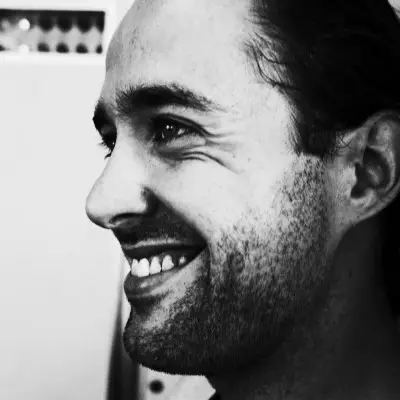This is the second half of a pair of essays ruminating on my decade of life in Taiwan, and looking towards its bright future. I enjoy living here and am excited and filled with hope about the future of this gem of a nation.
If you haven’t already, I suggest checking out the first part before reading this one.
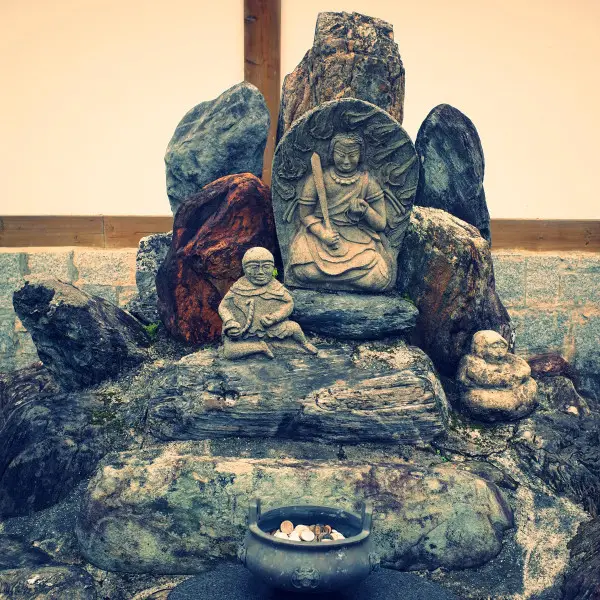
Context is key, and the general context in which I would place my time here is extremely positive. I have the utmost respect for the country of Taiwan and the people who have been making her so noteworthy.
In the spirit of full disclosure, constructive criticism, and general tough-love earnestness, there are some things which have irked me a bit (or occasionally more) over the years…
-
Driving Etiquette
For those who began their wheeled sojourns in the west, driving in Taiwan may sometimes seem a rather fervent and impolite affair. Cultural norms regarding the ‘right of way’ and yielding diverge rather widely from what many are accustomed to. Add to this a wider sense of ‘personal space’ and the cocktail that may emerge is one of feeling rather imperiled, subjected to dive bombings by overzealous scooterers with some regularity.
Drivers here routinely make right turns without so much as a glance to their left. The pervading expectation seems to be that traffic will adjust to their presence rather than taking the perspective that it is their responsibility to not force other drivers to swerve or hit their brakes. Left hand turns at intersections can be events of particular concern, generating a recurring sense of playing ‘chicken’ when driving straight through intersections, worried always that drivers may well jerk out a left-hand turn smack-dab in front of you.
That was precisely what occurred in my sole traffic accident of the last decade. I had absolutely no chance to avoid the car that snapped out a left-hand turn on our shared green light. Fortunately, the police were entirely reasonable, and all costs were covered by the errant left-hand turner.
That said, I do think that many westerners tend to over-vilify Taiwanese driving etiquette. Compared to many other significantly more congested Asian cities, navigating traffic here even in more cosmopolitan Taipei is, for the most part, like picking daises along a quiet country stream. Traffic flows slowly and sensibly, albeit in an often ‘pushy’ fashion, though drivers are typically readily willing to yield. Most notably, western endemics of vehement ‘road rage’ are far less common here.
Going slowly, keeping my brake at the ready, and always, always wearing a quality helmet, I’m off to the sweet breeze on some mountain roads… wish me luck!
We could all use a bit.

-
Ubiquitous Surveillance
What really motivated me to include this as something worth discussing is the subtle, pervasive harm that ubiquitous surveillance causes in our classrooms. In private educational institutes around Taiwan, security cameras are commonplace. While ostensibly ‘protecting students and teachers’, this practice reminds students and teachers alike that no-one is trustworthy - except for administrators, of course. The centralization of authority and the fact that classrooms that conduct affairs without an atmosphere of trust akin to that afforded to therapists’ offices, for example, tend to be places where education (sic) is especially likely to be relegated to mere assimilation and regurgitation rather than an active personal exploration of the intricacies of our lives, the vagaries of history, the development of character, finding and pursuing our joy, and the nuances of choice and perception.
But this is by no means a particularly Taiwanese phenomenon. It is increasingly pervasive in the west as well, especially in England.
It’s devilishly difficult to ascertain the degree to which installation of ever-vigilant CCTV cameras around intersections and outside of homes has been instrumental in securing the general sense of security and safety that the inhabitants of Taiwan enjoy. Protection is understandable in a dangerous world. As such, it would be an oversimplification to say that I am against CCTV, but rather am suggesting that they be confined to prisons, police offices, large intersections, army installations, protecting merchandise, ports of international entry, and the like - not our classrooms, offices, foreheads, or homes.
At the heart of the matter here is a fundamental framing of the rights we possess - the sort of society we want to create and live in. If anyone, anytime, is free to film anyone, anywhere (government installations notwithstanding), then we are heading towards a world where one can only find freedom from being recorded in the private property they are fortunate enough to own. And in bathrooms, we’d hope. In such a world, money affords one the privilege, the luxury of privacy. Privacy becomes like owing a yacht or a private yet. A world where only hermits, those of means, and those using a lavatory are free from having their every motion recorded and used against them is an odd one, isn’t it?
Do we want to raise our children believing that they are never trusted, unless they are in the bathroom?
Regardless of our take on it, don’t forget to smile and remember that there’s a reasonable chance anything you do outside of your home is being recorded, be it from an official state camera, one of the myriad store and home cameras, or just your usual helmeted forehead or dash-cams.
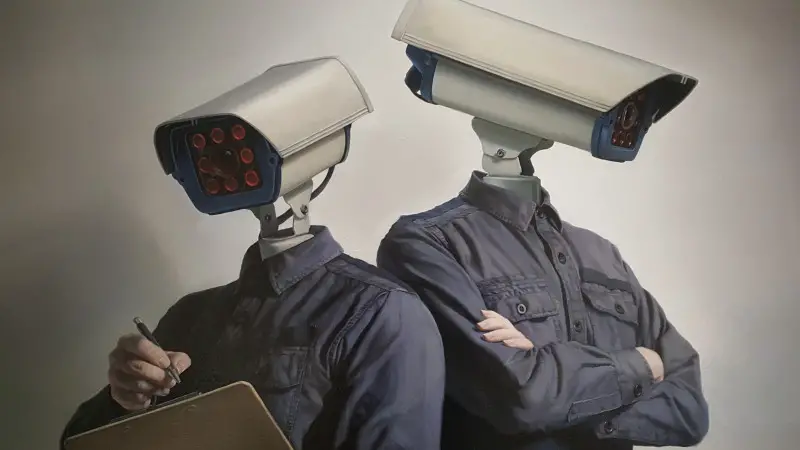
-
Test Culture
Another double-edged sword, cutting even deeper and more subtly than the last, the emphasis on numerically quantifying success via strictly defined metrics merits significantly deeper analyses. This is a global phenomenon, with countries around the globe desperately cutting recess, defunding elementary art, music, and dance classes, reducing student choice and cramming fervently for even marginally higher test scores. One is almost reminded of trench warfare in World War I, as the beauty, joy and goodness in life was blindly sacrificed for inches of dirt. I look forward to exploring this deeper in the future, and hope you, dear reader, do as well. We’ll circle back to this many times in the future, because, well…
Education is everything.
The traditional (revolutionary!) Chinese meritocratic approach to rewarding the highest performing applicants with positions in government was a monumentally positive step past the sorts of nepotism and cronyism that have plagued human affairs since time immemorial. The Confucian dedication to learning is quintessentially human. Insofar as learning is pursued widely, deeply, and compassionately, one finds the foundations of a robust social structure that well-positioned to persevere.
But the pitfalls to overemphasizing the importance of standardized tests are legion, and this emphasis manifests here in Chinese civilization with particular alacrity.
Over my years as a teacher here, I might characterize my students’ biggest challenge, in general, is their avoidance of mistakes above all else. This petrifying, overarching drive is anathema to joyful and artistic endeavors.
While avoidance of wrongness is indeed an essential human drive - I’m doing it here and now as well, right? - the years of being shaped by an educational process with rote testing held above all other values tend to whittle away creativity and stifle the unique magnificence in each of us, replacing it with a rusty reminder that above all else, we’re cogs in someone else’s machine.
The result tends to be students in language classes, for example, content and comfortable parroting simple stock phrases rather than personally engaging the cartography of human experience. After all, if their primary goal is avoiding mistakes, a simple correct reply is significantly better than a more complex one that they’re not as sure how to say perfectly.
Emphasizing the evaluation of students primarily on rote scientific or historical knowledge tends to gloss over the implicit values that generated the given reading that is being explored and the processes by which said scientific knowledge underwent en route to acceptance. We don’t inspire a new generation of eager, ethical scientists by cramming them full of taxonomic minutia at an ever younger age.
Emphasizing the concrete what over the contextual why, we strip information of its value.
Through romanticizing the exploits of leaders past and under-emphasizing the importance of women and the struggles of the unlucky and oppressed, for example, the sort of history that I was tested on in high school was maddeningly droll and actively harmful if we view historical analysis as a process of gaining a richer, more nuanced appreciation for the forces and trends that shape our experience and reality. Similarly, focusing on science as it is typically presented tends to relegate the process of inquiry and discovery to a particularly yawn-inducing sermon rather than the intensely integral, personal, fundamental, ever-changing paradigm that it represents.
Writers such as John Dewey, Neil Postman, and Ken Robinson have written masterfully regarding better ways in which the educational process can be framed.
The fact that students here emphasize quantifiable academic success so highly is certainly laudable. Success is always the goal, isn’t it? And, a society with fewer anti-vaxxers, moon-landing deniers, and those who believe humans have little or nothing to do with climate change is a better one, right? But the most important lifelong lessons we learn from our schooling are implicit and intricately embedded in the structures we occupy and empower through our years of participation, indoctrination, and consent.
Testing is often best used as a means of judging curricular and instructor effectiveness, rather than as a means of ranking relative student success.
Learning how to navigate injustice and failure; how to manage social nuances; how to cope with and right systemic inequities; how to responsibly deal with material abundance endemic to late-stage capitalism; how to be responsible citizens in participatory democracies; how to frame a cohesive, cogent narrative holding us together; how to discover one’s joy and the empowerment to pursue it broadly and passionately is far more valuable than merely parroting facts and demonstrating mathematical prowess.
We certainly aren’t helping today’s youth to be empowered, critical, creative, antifragile political forces holding authority duly accountable if we impress on them that the most important part of their educational quest is how well they remind said authority of what they already know well.
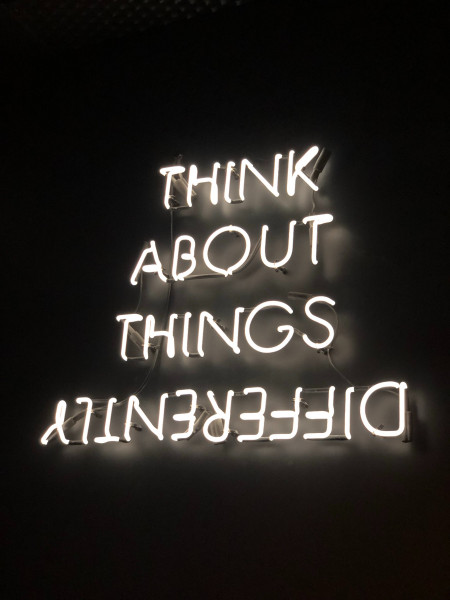
-
Indirect, Polite Speech
The roots of this practice are about as deep and complex as any cultural forces that we could be discussing. Nevertheless, I shall attempt to make some small headway into it.
Polite is good. Usually. It demonstrates empathy and respect.
Lord knows, that’s something millions of Americans should take to heart, as they reify their rights without duly appreciating the breadth and depth of their responsibilities.
Strangers and acquaintances tend to be kept at an especially impersonal distance in Confucian cultures. The extra dollop of politeness tends to smooth over social interactions, sparing parties from the potential embarrassment of making mistakes and crossing uncomfortable lines.
I would be lying if I said I didn’t miss random conversations with strangers that carried some value other than perfunctory goodwill. Even when I make it clear that I speak some of the local tongue and perhaps try to engage a given clerk in some off-script banter, a polite smile is the typical response, if my effort is acknowledged at all.
Digging slightly deeper into the issue here is how many foreigners, after working for and with Taiwanese for some time, tend towards the feeling that the locals are often somewhat duplicitous and even lacking in integrity, given the relative proclivity for intentionally less than accurate speech. A smile and a nod here isn’t a clear sign that an accord has been reached.
Candor is a delightfully dangerous delicacy in a world where we tend to feast on our own (mis)perceptions and so rarely engage in deep, real, meaningful interactions. Especially with strangers. I’d say these earnest steps-with-stranger are all the more important given the blistering pace of social change and how we tend to surround ourselves with friends very similar to ourselves, and with family that we are incentivized to be especially polite with.
There are many variables at play here, but having conversations where viewpoints differ and there is real potential for toes to get bruised is something I miss. But for the record, if you were to ask my mom, given all the Thanksgiving dinners I’ve “ruined” by arguing with my cousins over the years, she’d probably be rooting for the polite nod and a smile rather than more random honest opining.
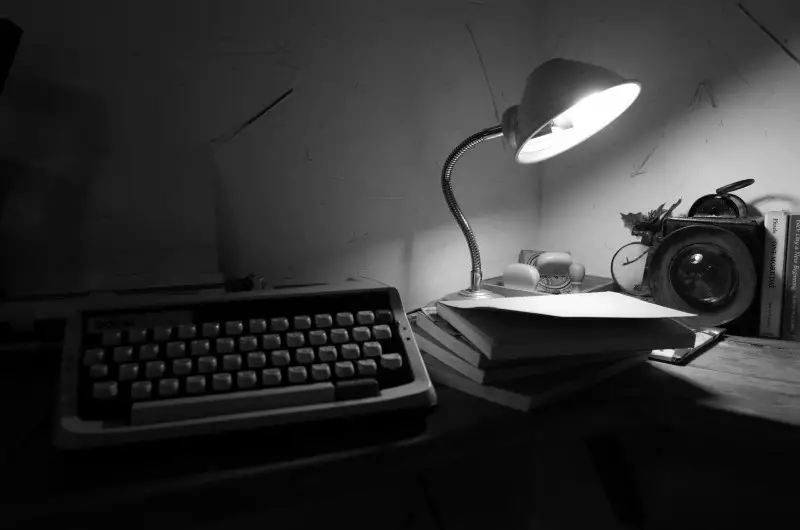
-
The China Question
Over all the peace and joy and entrepreneurship and beauty in Taiwan looms the spectre of imminent massacre.
Well, perhaps…
Everything else I’ve discussed here is academic and double-edged and interesting but overshadowed by one looming behemoth.
The Chinese government refuses to publicly renounce the possibility of employing lethal force in subjecting the Taiwanese people to their whim. Actively engaging in a policy of bribing and bullying those who would support the Taiwanese struggle to continue their many decades of continuous uninterrupted self-determination, the Chinese government seems intent on treating Taiwan in a manner reminiscent of how the U.S. government treats Guantanamo and other black-site detainees: ‘we’ll treat you how we want, and you can’t stop us.’
One cannot but wonder when we’ll all join the 21st century, and extend dignity and respect to all peoples.
In case you’re new to learning about Taiwan, the official party line of the most populous nation is that Taiwan is most assuredly and emphatically *not* a country. It is a wayward rogue province that ‘has been part of China since time immemorial’ which will inevitably waltz into jail under the Chinese government’s diktats, thereby relinquishing the dream of self-determination, religious tolerance, progressive social values, and human rights.
Einstein comes to mind: “Only two things are infinite, the universe and human stupidity, and I’m not sure about the former.”
The Taiwanese that I’ve become close with all but invariably view themselves as Taiwanese, and see only self-determination in their future. With characteristic pragmatism, they nonchalantly shrug their shoulders at the looming spectre of increased isolation and the possibility of armed conflict with the exponentially superior Chinese forces. Doing all they can to make their lives and the lives of their families better they simply keep moving forward, one step at a time, preserving what they love most about Chinese culture as they scour the world for the best of everywhere else they can find. I can’t think of a nobler pursuit.
Still, the prospect of investing long-term in a country (sic?) that lives under an ever-present threat of imminently being subsumed by the callous small-mindedness of an authoritarian dictatorship that views His Holiness the Dalai Lama, for example, as such a fell influence as to be worth censuring in toto is worrisome, to say the least.
The ‘China Question’ merits lifetimes of study. For now we’ll just briefly touch fascinating question mark that this is.
History certainly isn’t over yet. As I look out of my window, I see a socially cohesive system that respects fundamental human dignity while engendering prosperity alive and well right here in Taiwan. Or at least, she’s doing wonderfully after the bitter, brutal divorce - better than ever! - but her former spouse refuses to accept her leaving, and is publicly threatening to shoot her, and beat all her friends unless she comes home. Seriously. Right. Fucking. Now.
Today, Taiwan is a shimmering, self-reliant, exuberant example of why the Chinese government is fundamentally off-base: Confucian values can coexist with democracy, nationalism, and the common good. Put another way, Confucian values can foster human dignity, channel the best of socialism, and embrace the bounty of capitalism. People can be trusted to guide their own intellectual, personal, spiritual growth.
One might by unsurprised by continued oppression of Taiwan, as fragile, sensitive, ever-fearful cabals desperately uncertain of their own superiority typically do everything they can to justify their own existences.
But that’s precisely what the ego does, isn’t it?
I believe that even if respect and love for their Taiwanese brethren isn’t enough to deter China from this relentless campaign of repression, perhaps they will come to see the fact that it is in the best long-term interests of both the Chinese and Taiwanese people to continue to grow with, trade with, and learn from each other. It’s in the best interests of humanity, broadly speaking, given how many other nations would be caught in the undertow if any conflict were to escalate, and how many nations benefit from stability in the region now.
As I type this, the glowering totalitarian behemoth on the horizon busily bribing and bullying a blatant stairway to Taiwan’s hell worries me enough to consider withholding long-term investment in Taiwan, precariously situated as we are here.
But then I try to remind myself that that’s precisely what the Chinese leadership would want to have happen…
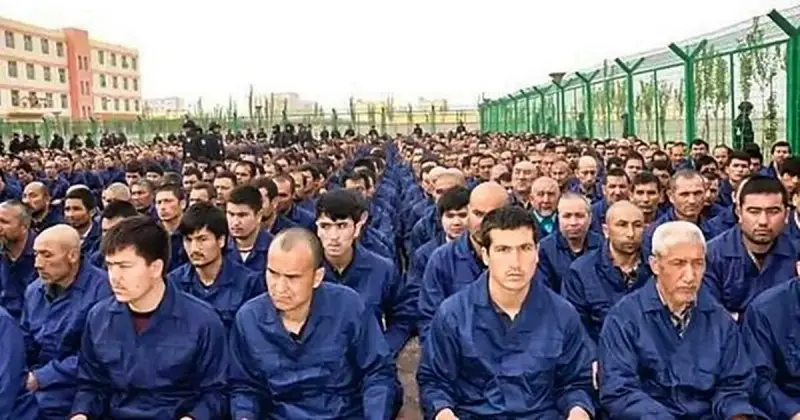
-
Feeling as an Outsider, Looking In
When talking about this experience with some of my adult students, one of them teased that I should go to Japan to see what real social exclusion feels like. Coming from America, where diversity is baked into our national ethos, it’s somewhat off-putting to be consistently treated as something of an oddity by default.
This is not to backpedal on my previous article, where I lauded a general sense of Taiwanese xenophilia. The comfortable distance at which foreigners are viewed and engaged is not entirely unpleasant, but within that gap something vital is lost, and while it’s completely understandable to erect walls to protect ourselves, their continued existence tends to exacerbate the conditions which compelled their erection and hinder growth on both sides.
Now to be sure, looking broadly and deeply in history, inclusive civilizations chock full of wealthy socially mobile foreigners treated just like (those who fancy themselves) locally-sourced citizens are about as rare as unicorns that can fly, juggle, and lick their own tails. Simultaneously. But that doesn’t entirely assuage the experience of knowing that I’ll always be an outsider, regardless of my disposition, education, and dedication to Taiwan.
Ever the romantic pragmatist, I’ll keep on doing my best, living and sharing as much of my dream as I can. Imperfect gems are still gems nonetheless. After all, that describes us all, doesn’t it?
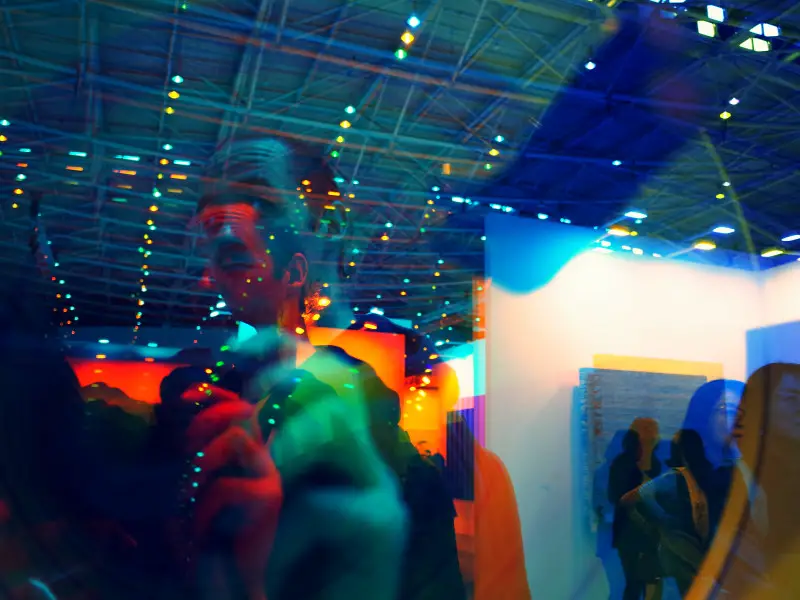
____
Thank you for reading, and thank you, Taiwan, for everything. It is a heavy burden to carry the truth of another, and I want to express my heartfelt gratitude for you bearing the burden of mine.
Consider this an open letter, beginning:
Dearest Taiwan,
You know I love you. You the bomb. But there are a few things I have to get off my chest…
With love,
Eric

